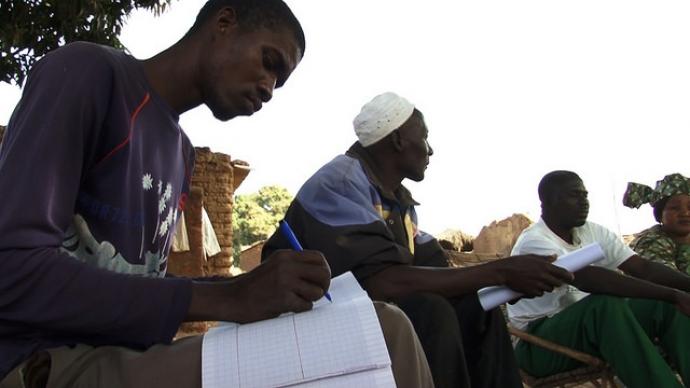Creating the capacity to adapt and innovate within national water, sanitation and hygiene sectors
Published on: 11/03/2016

By 2030 Sanitation Water for All (SWA)’s 49 partner countries have committed themselves to ensuring that every one of their citizens has access to water, sanitation and hygiene services. What is more, they’ve done this at a time of unique and historically unprecedented change. To deliver on their commitment will mean answering challenges that we have struggled with for decades. And it will mean doing so in the face of unprecedented environmental, economic and demographic change. What, as we sometimes jokingly say, could go wrong? To which the serious answer is, of course, plenty!
Does this mean that countries commitments are unrealistic or unachievable? Not at all. With the necessary political leadership (which I believe is not lacking among SWA’s members) countries at similar levels of economic development to current members not only can but have historically achieved universal access. However, doing so isn’t be easy. In addition to strong political leadership, achieving universal access will require the ability to analyse, innovate, reflect and adapt in the face of rapid change: to find innovative ways of getting WASH services to the “last mile”- and then sustaining them; to analyse who is getting what level of service – allowing us to effectively target gaps; to adapt services in the face of changing patterns of habitation, livelihood and demand. Creating the capacity to adapt and innovate within national water, sanitation and hygiene sectors calls for strong research and learning capacity, globally but most importantly within countries.
Preparing to travel to Addis as part of the group representing SWA’s Research and Learning constituency there’s one overriding message I will be aiming to communicate to Ministers and other partners: that by engaging in partnership with your national research and learning community you can build the adaptive capacity necessary to achieve your goals – whatever challenges the next 15 years throw at you.
The main “ask” of Government partners is therefore to engage with and provide leadership to their national research and learning constituencies – including helping to ensure that these are sufficiently financed. And, as importantly, to create the necessary “spaces” in which real, challenging and evidence-based dialogue can take place on the basis of shared and open data.
As in all good partnerships, the research and learning community doesn’t just have asks, but also things to offer, particularly on monitoring and learning (the foundations of adaptation), on innovation, and on the provision of quality evidence for decision making.
Monitoring, analysis and open access to the results of monitoring are key to adaptation - to creating a healthy cycle of monitoring and learning. The SWA research and learning constituency is committed to supporting the development of strong and effective national monitoring systems and to helping to ensure the quality of analysis and interpretation of monitoring data.
Providing services in new ways at lower costs or dealing with climate uncertainty and demographic change calls for constant innovation. The research and learning constituency will put its skills to use in supporting those at the cutting edge of such innovation, including the private sector.
Effective adaptation of policy and practice should be based on good quality evidence. The research and learning constituency will therefore work to provide this evidence, from its own research efforts, and from interpretation and analysis of monitoring data.
As a network, the SWA research and learning community are committed to helping each other to develop strong and vibrant national communities to support country partnerships. We’ll do this through sharing experiences, providing a forum for peer review, supporting the ability of members to provide high quality evidence based advice and support to governments and other sector actors.
Indeed, to me, it is this model of government -led partnership that is SWA’s most compelling attribute. Strong partnerships are the key to success in driving the implementation follow up and review of the Sustainable Development Goals and the commitment to universal access to WASH services.
So, I’m travelling to Addis with a couple of asks and a handful of offers and what I hope is a compelling vision of the role of active and engaged national research and learning constituencies in achieving our shared vision. With a well-structured agenda, a set of building blocks and agreed behaviours, and now 49 country members, I’m convinced that we have all it takes for a great meeting that spurs real action.
At IRC we have strong opinions and we value honest and frank discussion, so you won't be surprised to hear that not all the opinions on this site represent our official policy.